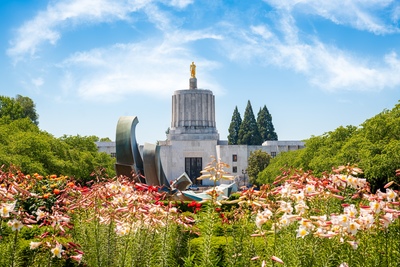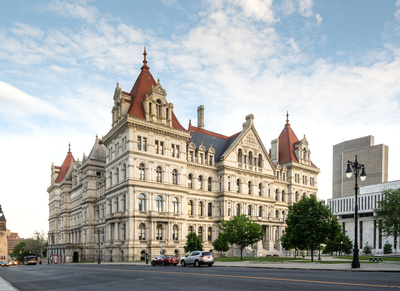
Technology & Privacy
Growing State Movement to Ban Student Cellphones in Schools Gains Momentum
July 11, 2025 | Bill Kramer
December 12, 2023 | Bill Kramer

Key Takeaways:
This article first appeared in Morning MultiState, our weekly tipsheet for state government affairs professionals. To get the latest, be sure you're signed up (check the "Morning MutiState box).
After a period of high trust from consumers, the largest technology firms have been battling political headwinds from both the right and the left. And with the rise of artificial intelligence (AI) now in the spotlight, we don’t anticipate this discussion getting any easier for tech companies as they enter the 2024 legislative sessions. In fact, a repeated theme we’ve seen from policymakers looking to regulate AI is the regret that lawmakers failed to act on social media and that they won’t make the same mistake with AI.
Lawmakers are now pushing for laws to require age verification and parental consent for those under 18 years old in order to access most social media websites. Social media companies would need to use third-party companies to verify the age of users. Lawmakers in Arkansas (AR SB 296), Utah (UT SB 152), and Louisiana (LA HB 77) enacted these types of laws in 2023. These bills have bipartisan appeal; lawmakers in New Jersey, a blue state, introduced a similar bill last week. A similar trend of age verification laws swept through the states in 2023 aimed at websites hosting adult content. Lawmakers in Louisiana, Arkansas, Montana, Mississippi, Utah, Virginia, and Texas have enacted age verification laws aimed at the pornography industry.

Proponents of these laws make a straightforward child protection argument, which has found a receptive audience in state lawmakers. Opponents counter with privacy concerns and First Amendment arguments, the latter of which has found early success in the courts. In August, a federal judge temporarily blocked Arkansas’ social media age verification law on First Amendment grounds. And a federal judge blocked Texas’ age verification law for adult content websites in September. The judge ruled that the law violates free speech rights, is too vague, and raises privacy concerns. Similarly, Montana’s law banning the use of the app TikTok, enacted in 2023 and set to go into effect on Jan. 1, faces a skeptical judge on First Amendment grounds. So while popular with lawmakers, these laws aimed at social media websites and requiring age verification face an uphill battle in the judicial system.
But we also don’t anticipate lawmakers backing off the issue after a few legal setbacks. State lawmakers have already indicated that technology, including AI and social media — two areas of tech set to play a role in the 2024 elections, will be a big focal point for legislation in 2024.
For more timely insights like this, be sure to sign up for our Morning MultiState weekly morning tipsheet. We created Morning MultiState with state government affairs professionals in mind — sign up to receive the latest from our experts in your inbox every Tuesday morning. Click here to read past issues and subscribe.

July 11, 2025 | Bill Kramer

June 25, 2025 | Kim Miller

June 24, 2025 | Bill Kramer